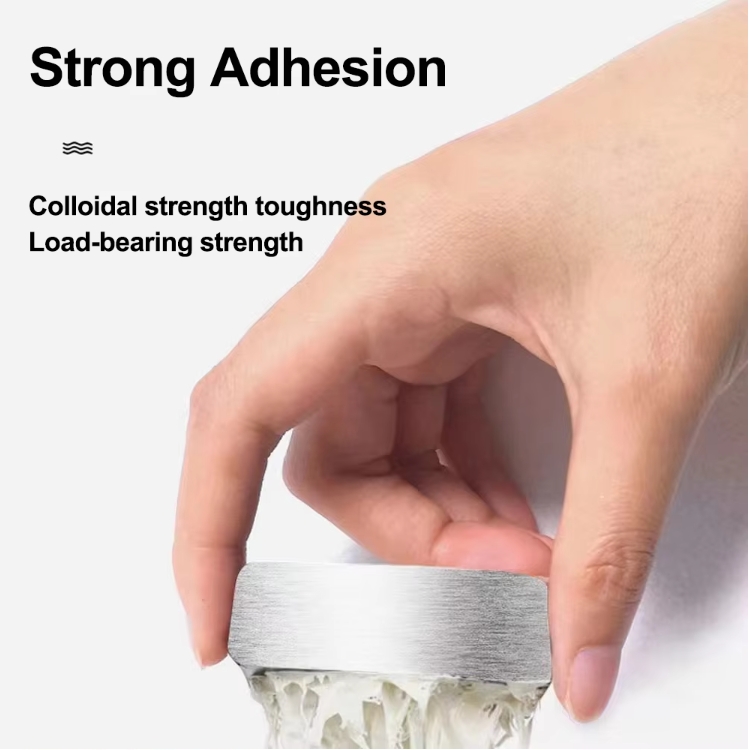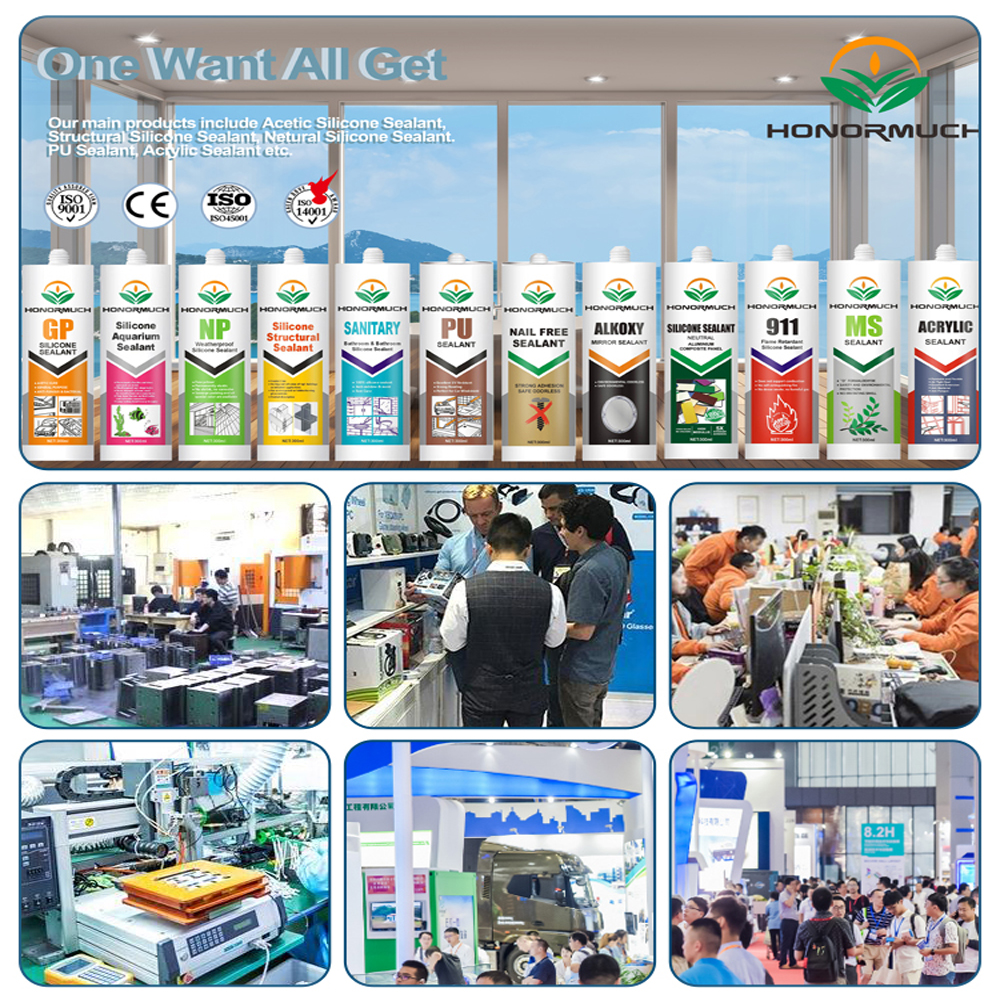How to choose silicone sealant
Silicone sealant is a paste made of polydimethylsiloxane as the main raw material, supplemented by cross-linking agent, filler, plasticizer, coupling agent, and catalyst mixed in a vacuum state. It reacts with water in the air at room temperature and solidifies to form an elastic silicone body. The sealants, glass glue, silicone glue, barrel glue, barrel material, and silicone sealant seen on the market are actually just different names.
Silicone sealant PK other organic products (such as polyurethane)
1. In the same application, it can usually provide three times more durable protection than organic products, thus avoiding premature failure and costly repair work.
2. Organic matter is prone to reversible reactions-organic polyurethane loses its curing properties and returns to a soft substance like chewing gum.
3. The difference between silicone products and organic products is the difference between long-term value and premature failure, and silicone wins.
4. Long life cycle, providing outstanding value, adapting to various climate applications and performance, can resist UV, ozone, rain, snow and extreme temperatures, more durable than organic products, providing long-lasting flexibility and adhesion.
Characteristics of silicone sealants
When choosing silicone sealants, pay attention to the following characteristics:
1. It can maintain stability over a wide range of operating temperatures.
2. Weather resistance: High resistance to UV, radiation and climate erosion, which can prevent hardening, cracking, breaking, drying and brittleness.
3. Chemical stability: It is not easy to degrade even after long-term exposure to a variety of chemicals and atmospheric pollutants.
4. Good bonding strength: Good adhesion in applications, including glass, ceramics and wood, painted surfaces, and many metals and plastics.
5. Electrical properties: It can be used in various electrical and electronic applications, including devices with thermal cycles over a wide temperature range.
6. Low flammability: In the event of fire, silicone adhesives/sealants are not easy to burn.
Application of silicone sealant
1. Weather-resistant sealing of various curtain walls, especially recommended for weather-resistant sealing of glass curtain walls, aluminum-plastic panel curtain walls, and stone dry hanging;
2. Sealing of joints between metals, glass, aluminum, tiles, plexiglass, and coated glass, which is widely used in home decoration;
3. Sealing of joints on the surfaces of concrete, cement, rock, marble, steel, wood, anodized aluminum, and painted aluminum.

 How to choose silicone sealant
How to choose silicone sealant
